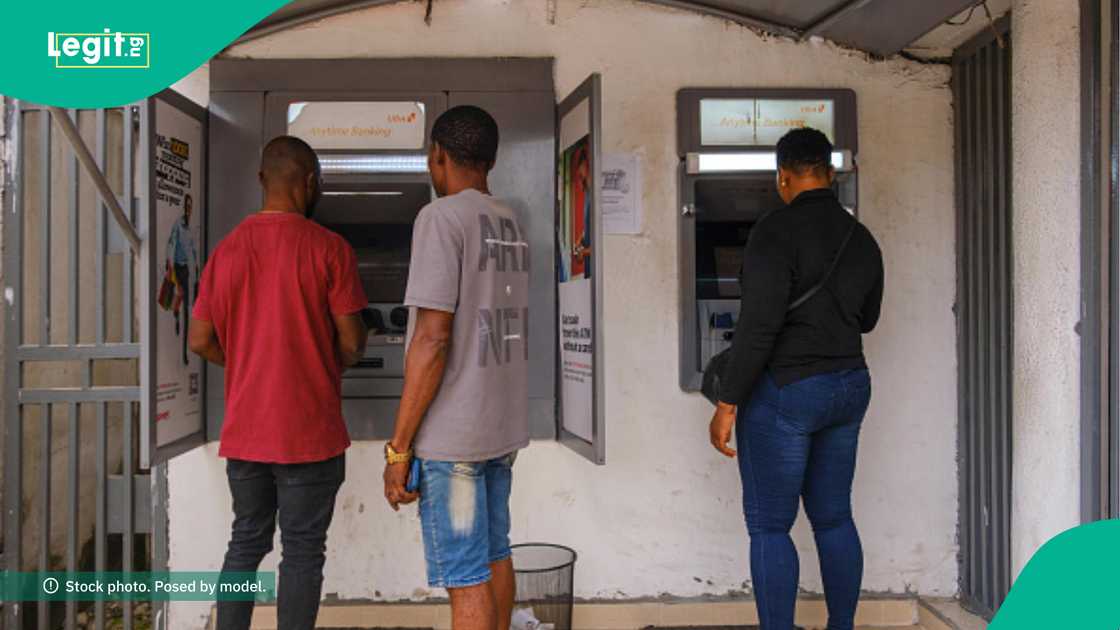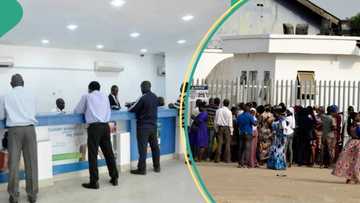Zenith, Access, Others Increase Rate for Customers to Borrow Money as CBN announces Policy Changes
- In November 2024, the banking industry's average maximum loan rate increased to 31.06%, the highest since 31.4% in 2019
- This came after the most recent hike in the Monetary Policy Rate (MPR) by the Central Bank of Nigeria
- The CBN has hiked six times this year to address significant economic challenges and maintain the stability of the financial system
Legit.ng journalist Zainab Iwayemi has 5 years of experience covering the Economy, Technology, and Capital Market.
The average maximum lending rate in the banking sector rose to 31.06% in November 2024, the highest level since 2019 when it was 31.4%.

Source: Getty Images
This followed the Central Bank of Nigeria's (CBN) most recent increase in its Monetary Policy Rate (MPR).
The average of the highest lending rates that Nigerian deposit money banks charge is referred to as the maximum lending rate.
In order to tackle important economic issues like double-digit inflation, foreign exchange stability, and financial system stability, the CBN has raised the MPR six times this year.
The CBN raises the MPR to make borrowing more costly and saving more alluring when inflation is high, which is at 34.60 percent as of November 2024.
But ThisDay reported that the sharp rise in the policy rate has raised questions about how it would affect the cost of financing for companies that are already struggling financially.
The CBN's money market indicators data showed that the average maximum lending rate (MPR) rose from 30.28% in October 2024 to 31.06% in November 2024 after members of the Monetary Policy Committee (MPC) decided to raise the MPR from 27.25% to 27.50%.
Interest rate keeps increasing
Early in the year, the CBN's money market indicators showed an average maximum lending rate of 27.07% in January 2024 when the MPR was 18.75%, and it closed at 29.38% in March 2024 when the MPR was 24.75%.
The average maximum lending rate also increased from 29.93% in August 2024 to 30.21% in September 2024 when the MPR was raised from 26.75% in August 2024 to 27.25%.
The maximum lending rate in Nigeria, which is the highest amount that banks charge for loans, particularly to higher-risk clients, has fluctuated.
From 1961 to 2024, the average loan rate for Nigeria's banking sector was 14.17%; it peaked in September 1993 at 37.80% and fell to a record low of 6.00% in April 1975.
When the MPR rate was 13.5% in 2020, the average maximum loan rate peaked at 30.73%.
The maximum lending rate in Nigeria, which is the highest amount that banks charge for loans, particularly to higher-risk clients, has fluctuated.
From 1961 to 2024, the average loan rate for Nigeria's banking sector was 14.17%; it peaked in September 1993 at 37.80% and fell to a record low of 6.00% in April 1975.
When the MPR rate was 13.5% in 2020, the average maximum loan rate peaked at 30.73%.
The report added,
“The continuous hikes in MPR have tightened financial conditions for the productive sector, with the average maximum lending rate charged by commercial banks on manufacturers’ finances rising to 35 per cent in Q2 2024 from 28.6 per cent in Q1 2024.”
Experts react to increase in interest rate
Legit.ng reported that in spite of decreasing inflation, the Central Bank of Nigeria (CBN) had increased the benchmark interest rate for the fifth time in a row, this time by 0.5 percentage points to 27.25 percent.
To date, the CBN has increased the monetary policy rate—a measure used by decision-makers to manage the amount of money in the economy—by a total of 850 basis points from 18.75 percent in July of last year, to the highest level ever noted in the nation.
Despite being intended to counteract inflationary pressures and stabilize the economy, the ongoing increase in interest rates has a significant impact on businesses, as households are also affected by its passthrough effect.
PAY ATTENTION: Сheck out news that is picked exactly for YOU ➡️ find the “Recommended for you” block on the home page and enjoy!
Source: Legit.ng




